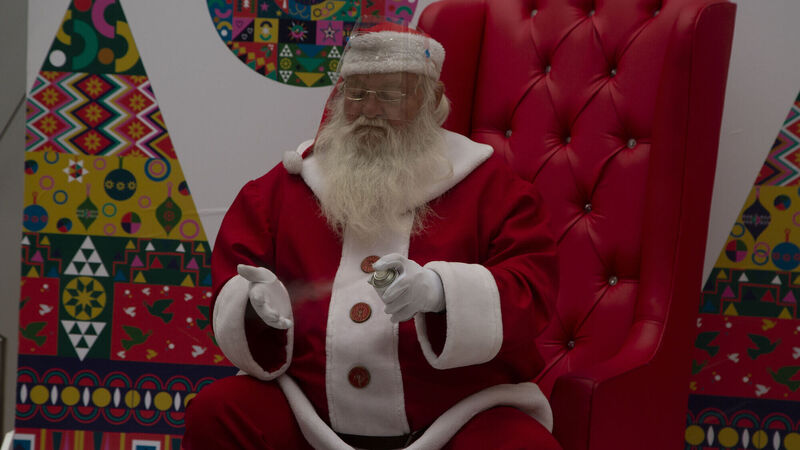Tommy Martin: Santa still remains bigger than Messi and Ronaldo put together

Santa sanitizes his gloved hands, to protect against Covid-19, during a day of being photographed with children at a shopping mall in Johannesburg, South Africa. Picture: AP Photo/Denis Farrell
My peak Santa years were between the ages of seven and 11, after teddy bears and before the Braun electric shaver.
It’s no coincidence that this is also when a child might fall in love with sport. Like Diego Maradona, Seve and Steffi Graf, the Big Man remains a hero. If you get them at that age, you have them for life.









